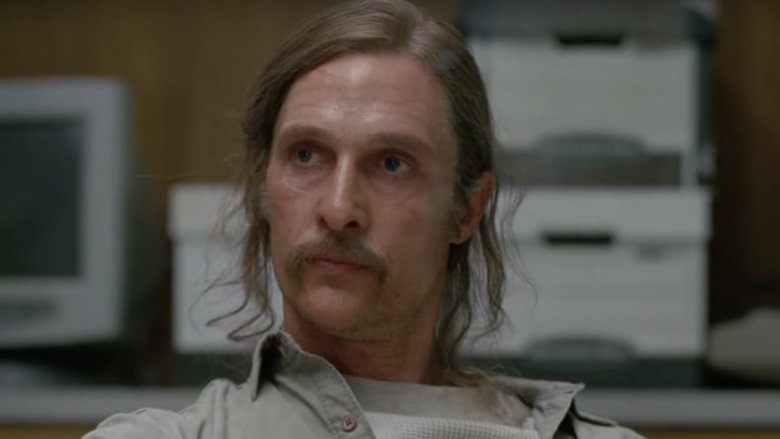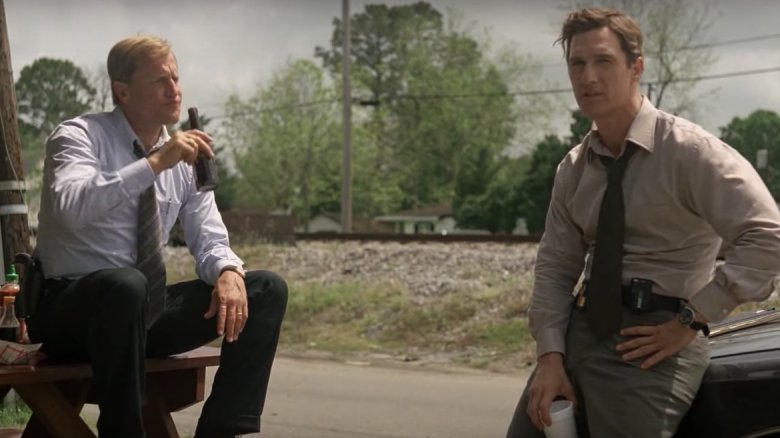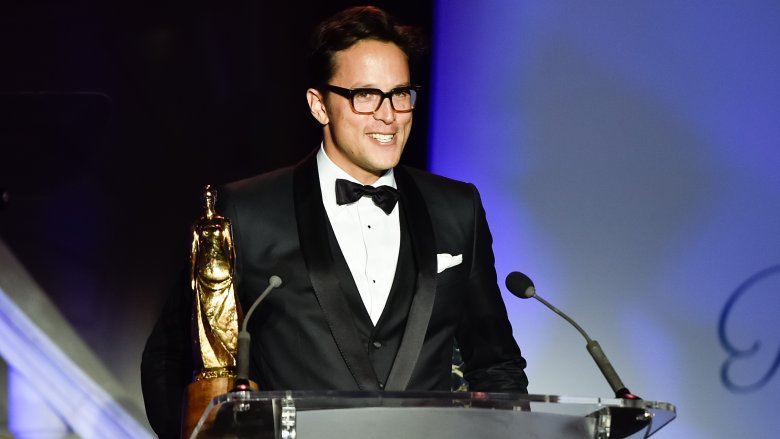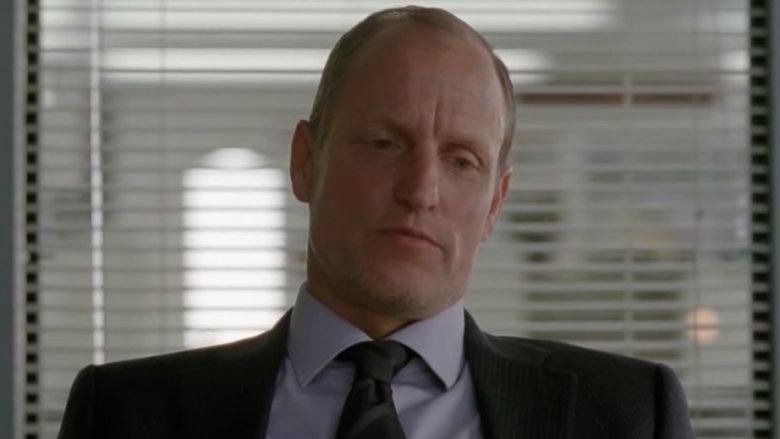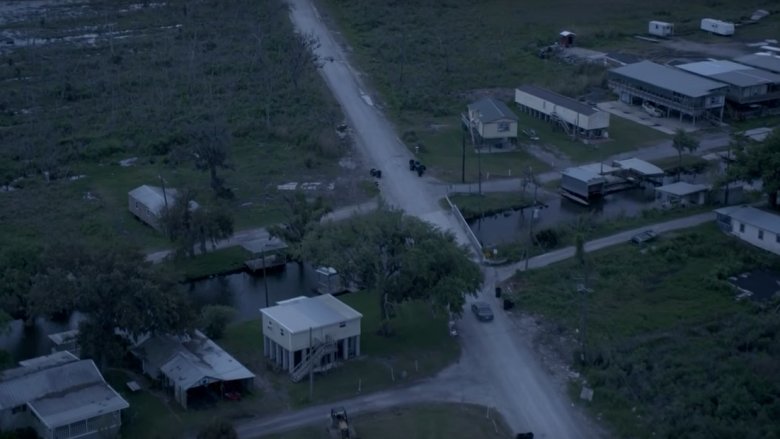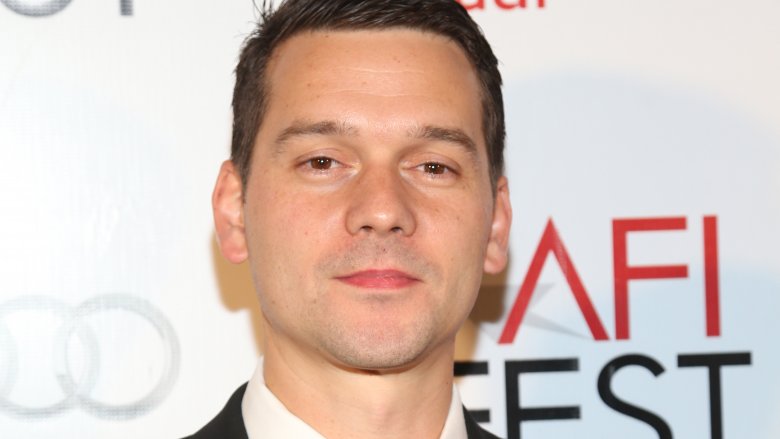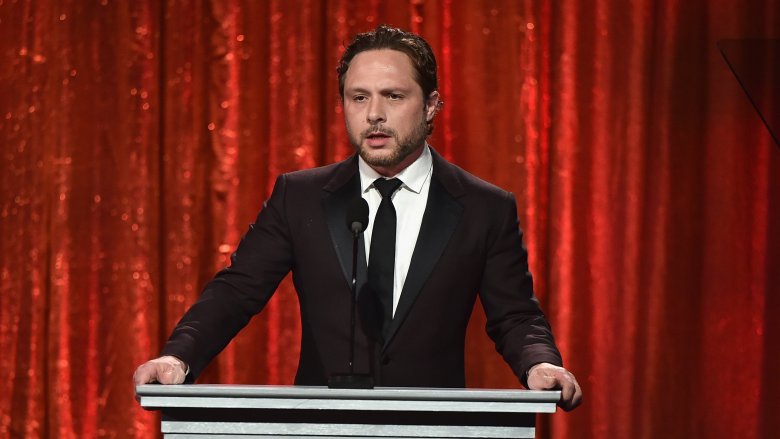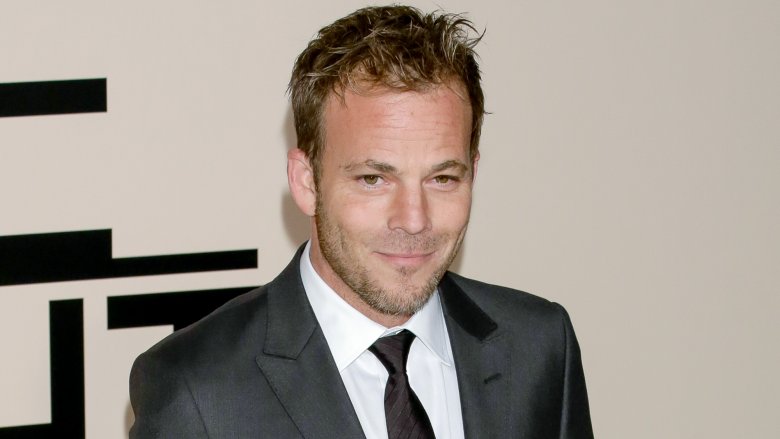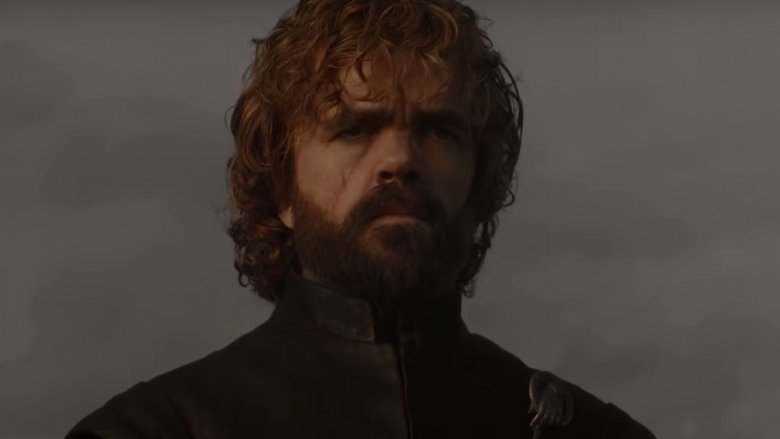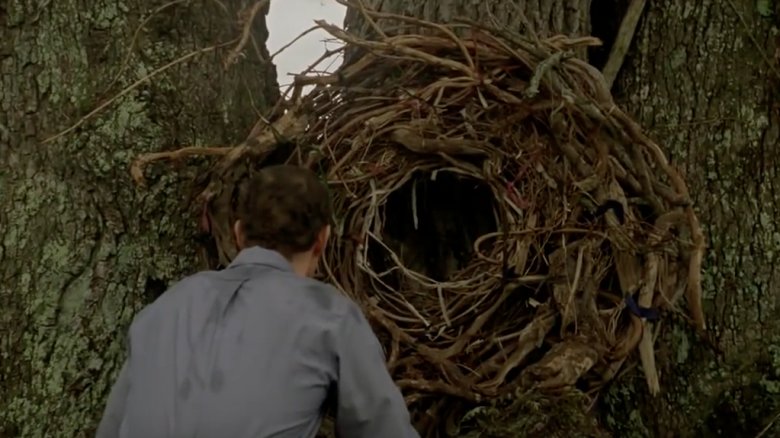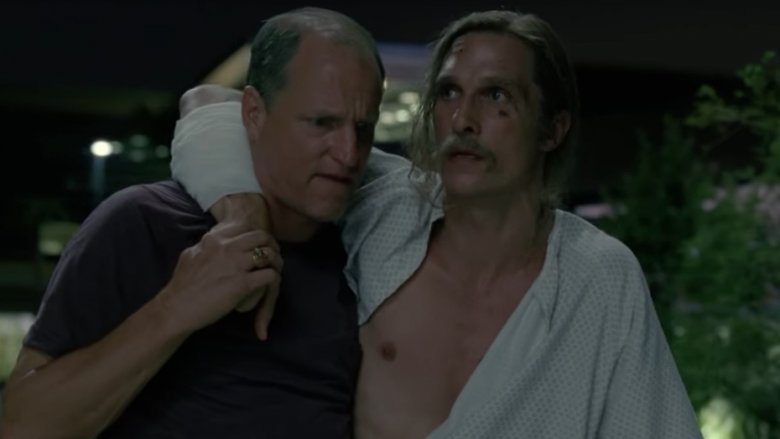Why We're Worried About True Detective Season 3
The return of True Detective has proven one of the more compelling TV announcements in recent memory. The show made waves with its 2014 debut, garnering awards and acclaim — but then its second season undid much of that goodwill, ending up such a trainwreck that the show fell into development limbo at HBO and seemed to be more or less canceled. Yet here we are, preparing for a third season, something it seems unlikely that anyone expected this long after the second one ended.
There's no telling where the third season of True Detective will take the franchise. The best case scenario is that it revives the show and leads to a new era that hopefully avoids the mistakes that derailed the series during its sophomore run. But like the old saying goes, you should hope for the best while planning for the worst, and while there's plenty of upside, there are also a lot of causes for concern. Between on-set shakeups and plot details that feel just a bit too familiar, here's why it's reasonable to be worried about True Detective season three.
No Rust, no Marty
Rust Cohle (Matthew McConaughey) and Marty Hart (Woody Harrelson) are two of the greatest television characters of all time, a clever and subversive take on the familiar good cop/bad cop dynamic. Rust, ever the nihilist, should be insufferable, but somehow comes off as cooler and more charming than his partner. On the other hand, Marty establishes himself in the pilot as one of the most despicable characters to ever hit television, a greedy coward who hides behind the guise of a family man. Rust and Marty are played to perfection by McConaughey and Harrelson, both of whom earned widespread acclaim.
No one factor made the first season of True Detective such a runaway hit, but the biggest might be McConaughey and Harrelson's performances. They anchored the show, with their chemistry making for can't-miss television. However, as the sophomore season showed, you can't just stick talented actors onscreen and hope everything clicks. The third season of the show has some killer talent lined up, but it's hard not to be worried about whether if this show will ever work without Rust and Marty.
Half the original vision
The show's first season very much felt like a cohesive and consistent creative vision, thanks in no small part to the chemistry between writer/showrunner Nic Pizzolatto and director Cary Fukunaga. Fukunaga directed every episode of True Detective's first season and brought his unique aesthetic to Pizzolatto's story. In season 2, Fukunaga stepped aside, and the void left in his absence was palpable.
The show's second season features a number of talented directors behind the camera, including Star Trek: Beyond's Justin Lin. However talented those directors might be, the vision didn't gel quite the way it did under Fukunaga's hand. With him behind the camera the show felt like a true collaboration, one in which Pizzolatto and Fukunaga's visions melded, working hand in hand to tell the story the best way it could be told. Fukunaga remaining uninvolved in season 3, and that's worth being worried about: one of the biggest factors in what made True Detective great won't be coming back to work his magic anytime soon.
Old tricks
Season one of True Detective employed a unique nonlinear narrative, jumping back and forth between the '90s and the present, with smaller detours between the two time periods. We watched Rust and Marty try to solve a case in their early days that we already knew would end in failure based on what they told us in the present. It framed their character development beautifully, and proved an excellent way to write a mystery. Season two didn't utilize this type of narrative, for good reason — it's the sort of trick that can probably only work once.
So why is it being brought back? The show's third season is said to be another nonlinear narrative taking place over the course of not one, not two, but three different time periods. It's worth being worried about this, to say the least. The first season utilized nonlinear framing as a clever narrative device. Bringing it back reeks of trying to recapture lost greatness, an effort that seems unlikely to end well.
Deja vu down south
Setting has played a major role in True Detective. The first season, set in the swamplands of Louisiana, utilized it to create the perfect sinister atmosphere. Imperfect as season 2 may be, Los Angeles' winding highways and sprawling urban landscape brings a lot to the story. It looks like season 3 will take the story to a new location, the Ozarks of Missouri. However, the location might not be as new as it seems.
The Ozarks don't have much in common with the Louisiana bayou in terms of terrain. Still, it's reasonable to be worried about a series of apparent similarities between the first season and the third. Season 3 will tell a story over multiple time periods in a very specific region of the south, and even if the Ozarks and the Louisiana bayou aren't exactly the same, be wary of another nonlinear regional southern mystery. That sort of thing works great the first time, but carrying over surface level similarities won't do much to elevate the quality of this new season without some seriously great storytelling to back it up.
Jeremy Saulnier's already out
One of the more encouraging pieces of news to come out surrounding the show's third season was the addition of Jeremy Saulnier in the role of co-director alongside Nic Pizzolatto. Saulnier only has one feature to his name as a director, but it's a heck of a debut: 2016's Green Room is an acclaimed, relentlessly tense thriller.
Unfortunately, Saulnier has already exited True Detective due to scheduling conflicts and, allegedly, tension with Pizzolatto. He'll only be credited as director of the first two episodes. It's a shame on multiple fronts — Saulnier is a talented storyteller, and another season with multiple directors could prove detrimental to recapturing that feeling of a unified vision. This seems even more in jeopardy if the allegations of Saulnier and Pizzolatto's visions clashing prove true. It's hard not to be worried about the two episodes he managed to finish directing — they may end up failing to live up to their potential because of it.
Pizzolatto takes over
While Nic Pizzolatto made for a great showrunner in True Detective's first season, the second saw him holding the reins on his own with a rotating crew of directors. As talented a writer as he may be, it's pretty clear that he benefited from the input of a partner; unfortunately, it looks like season 3 will see him taking on more responsibility and authority than ever.
Even before Saulnier left the show, Pizzolatto was set to co-direct season three of True Detective. He has no directing experience outside of the show, but there's nothing inherently wrong with him co-directing, although it's hard not to imagine there might have been a steadier creative vision had Saulnier remained on board. With Saulnier gone, TV veteran Daniel Sackheim has stepped in to co-direct alongside Pizzolatto. Sackheim is talented in his own right, but the change leaves Pizzolatto as the only consistent director on the show. It makes sense for fans to be worried, as he's doing this for the first time — and he's already shown that the show is at its best when he's not the only voice in the room.
The return of Stephen Dorff
Mahershala Ali is a ferocious talent. Whether he's chopping it up as a menacing comic book supervillain or turning in a stunningly emotive and human performance, he's one of the most magnetic actors working today. It's good news, then, that Ali will be playing season three's protagonist, a police detective (surprise, surprise). That said, this is the show that gave us Rust Cohle and Marty Hart, so the expectations for Ali's co-star are incredibly high — and it's understandable that fans might be worried about Stephen Dorff, who's playing Ali's partner in season three.
Dorff is a talented actor (nothing but respect for the man who brought Deacon Frost to life in Blade). Nonetheless, he's something of an odd pick. Harrelson and McConaughey are like peanut butter and jelly, and were so long before True Detective. Dorff isn't quite as proven a quantity. It's been quite some time since he was attached to a project that drew significant critical acclaim. There's nothing wrong with a dark horse casting pick, but in such a pivotal role, it could prove detrimental. Here's hoping Dorff's performance is a pleasant surprise.
Timing is everything
2019 is going to be a monumental year for HBO, and not because of True Detective's third season. No, that's the year that the final season of Game of Thrones will air. Thrones has long been a critical and commercial smash hit for the network, and arguably the single hottest TV show on the planet. It makes the timing of True Detective's reemergence all the more questionable.
HBO isn't without hit shows, but it doesn't have anything on its current lineup that can match Game of Thrones' drawing power. The closest thing is Westworld, and that show has already proven to be somewhat unreliable when it comes to scheduling production. The network is likely hungry for a ratings juggernaut to tide them over until they find the next big thing. Why take a risk on a big, expensive unproven idea when you can just revive an old hit? True Detective's first season was a huge ratings success for the network, but it's impossible to forget that its sophomore outing was so poorly received that the show was effectively put on ice. The timing seems all too convenient to believe that HBO is reviving this show purely because the right story finally clicked.
Where's the mythos?
The first season of True Detective inspired fan theories so elaborate they'd make an Area 51 fanatic roll their eyes. There's so much to dissect in those eight episodes, and it's largely due to Pizzolatto anchoring the show's story in literary lore. It draws on the work of H.P Lovecraft and Robert E. Chambers' The King in Yellow collection of short stories, basically giving readers the fun version of homework to deepen their appreciation of the story being told. While the second season isn't without its share of literary references, they come off far more as shameless ripoffs.
True Detective just doesn't feel like True Detective without a thoughtful engagement anchored in literature. Pizzolatto doesn't necessarily need to make another season revolving around Yellow Kings and time being a flat circle, but it's hard to imagine the show recapturing that old glory. Pizzolatto has had trouble striking that balance, and it's hard not to be worried — especially given his new position as head writer and director — that he won't be able to find it again with True Detective's third season.
Too much of a good thing
True Detective's debut season is great for many reasons, and one of the most important — as well as rarely acknowledged — is that it's short. It tells its story in eight episodes and then rides off into the sunset. Anthology-style television can be great — Fargo has offered a recent reminder — but it's hard not to be worried that this sleeping dog might have been best left to lie.
Even a very, very good third season of True Detective will live in the shadow of the first. We never really needed a second or third story from Pizzolatto and company. We've already seen what is likely the best possible version of this show, and more seasons that don't live up to its standard will only feel like diminishing returns. Leaving the show as is preserves its reputation. Another season could risk sending it into Heroes territory, among shows that didn't know when to call it a day — and ended up worse for it.
